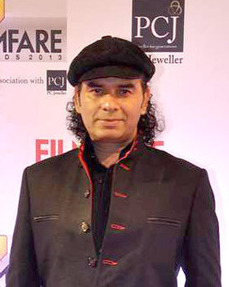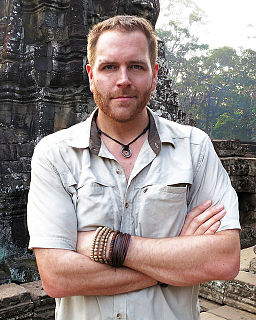A Quote by Mohit Chauhan
The whole basis of conserving is not about nature - it is about people. If we don't look after the people surrounding the place, and if they don't have the value of preserving it in their pockets, then they are not going to preserve it.
Related Quotes
It is only when the people become ignorant and corrupt, when they degenerate into a populace, that they are incapable of exercising the sovereignty. Usurpation is then an easy attainment, and a usurper soon found. The people themselves become the willing instruments of their own debasement and ruin. Let us, then, look to the great cause, and endeavor to preserve it in full force. Let us by all wise and constitutional measures promote intelligence among the people as the best means of preserving our liberties.
Because of my pride in my Scottish heritage, I used to say things like 'I don't mind buying a round of drinks but I don't buy two'. It was something I joked about which has come back to bite me on the ----. I'm shrewd about money, I invest well, and look after it. But it's in my nature to be generous. I look after people.
The whole basis of working in black and white and grays became the basis of my understanding of color, because it's all about tone, it's all about light and dark. If you don't get that, then your color work is going to be a mess. So that's the beginning of the toolkit: drawing and black and white media.
When I watch TV, and TCM isn't on, I just switch channels and look at all the information about everything. The internet is perfect for that, which is why I didn't really want to get a computer in the first place. I thought, "If I have a computer and know about this whole Google thing, I am not going to be able to sit still for a second; I'm going to think about something and then have to look it up." I have never bought myself a computer or a phone, but guys in my life have bought them for me, for whatever reason. So now I have them.
I think if you look after yourself on a regular basis, and do the prep beforehand, you don't need to put lots of effort into looking good. It's about finding the right balance - if you have a good diet, drink lots of water, exercise regularly and sleep, you won't look bad on a regular basis. Then you can afford the occasional naughty slip up once in a while, going out and having a delicious glass of wine with friends, having a great laugh and chat then realizing its 2am isn't so bad - you've put in the hard work!
Missions then is less about the transportation of God from one place to another and more about the identification of a God who is already there [...] You see God where others don't. And then you point him out. So the issue isn't so much taking Jesus to people who don't have him, but going to a place and pointing out to the people the creative, life-giving God who is already present in their midst.
What you hear in focus groups and conversations, people will give you 20 minutes of rage about how the borders are out of control. But then you start saying, practically, what are we going to do about it? What are we going to do about the 11 million here? What are we going to do to get some workers we need for the farms? Then people start having a normal conversation.
A [spatial, temporal] work had only to be exhibited in a gallery and then written about and reproduced as a photograph in an art magazine. Then this record of the no longer extant installation, along with accretions of information after the fact, became the basis for its fame, and to a large extent its economic value.



































